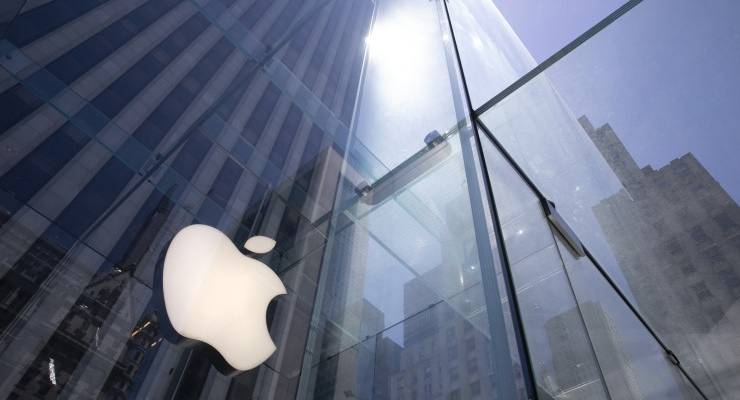
As Apple nears the point of becoming the world’s first $3 trillion company, its stocks, at least for the moment, have acquired the kind of status usually reserved for US government bonds.
On Tuesday last week — when Omicron loomed large over the global economy and the US Federal Reserve chairman Jerome Powell removed the word “transitory” from his references to inflation — Wall Street fell out of bed, but Apple shares jumped a sharp 3.2% to a then record close of US$165.30. That sent its market value above a record US$2.7 trillion — or nearly twice as much as the Australian economy on current exchange rates.
On Wednesday Apple shares rose another 2.3%, taking its market value above US$2.87 trillion. Then on Friday the shares rose 2.8% to send the company’s value to US$2.94 trillion — just US$60 billion short of the US$3 trillion level.
In the past month, Apple shares have risen more than 18%, compared with the S&P 500, the world’s major market measure, which is up just 0.62%. That means Apple shares have risen 35% year to date. Nasdaq, the major tech stock market measure, is up “only” 21%.
The share prices of rival megatechs have failed to match Apple in the past month: Microsoft is up just 1.7%; Netflix is down more than 9%; Amazon is down 2.3%; and Alphabet is off 0.6%. Shares in Meta (Facebook) are down 3.2%.
Apple has a different value proposition to its major rival, Amazon, which although anchored in the consumer space with its huge e-store operations in the United States and globally also has a massive cloud computing business, smaller bricks and mortar retailing, a growing advertising business and interests in the next generation of motor vehicles.
But Apple has a range of popular consumer products in global markets and, crucially, 750 million subscribers to its various services — and rising. It faces little of the intense regulatory scrutiny that Facebook is under and lacks the bad odour of Amazon and its anti-unionisation tactics, despite being resolutely hostile to unions.
After a decades-long run as one of the world’s best-performing stocks, Apple is on the verge of reaching US$3 trillion in market value. If it were a country, it would be the fifth largest economy behind Germany (and its value is bigger than the entire German equity market). Of the tech giants, only Microsoft, which has a market capitalisation of about US$2.5 trillion, is currently comparable.
It’s less than four years since Apple first topped US$1 trillion. In late 2000, amid the remains of the tech and net boom and bust, Apple was valued at just US$4.5 billion.
US bonds are the traditional global “safe haven” (gold has been relegated to the also-ran list for more than a year) with investors piling into them at times of stress — as they have been doing since Omicron, the new COVID variant, made its global debut on worry lists.
The rise in the Apple share price suggests that US investors see the iPhone giant as at least as good a credit risk as the US government’s securities.
Apple isn’t merely bigger than nearly every government, it’s being treated as safer than most of them as well.









I notice my previous comment is ‘Awaiting for approval’. That should either be ‘Waiting for approval’ or ‘Awaiting approval’.
Whichever, no approval so far …
See what you can do with vision and commitment. And a spot of slave labour.
“If it were a country, it would be the fifth largest economy behind Germany”
C’mon Crikey – you’re better than that.
Apple has market cap of $3 trillion – that’s akin to a balance sheet measure. Germany’s GDP is an annual production measure – more akin to income.
A more relevant comparison would be to look at its profit plus wage bill which seems to be about $120 billion. That would make it about the size of Sudan and about 60% the size of New Zealand.
Oh dear, journalists confusing stocks and flows again, or Apples vs oranges. Market value is a stock, GDP is a flow. You need to look at how much profit Apple makes and compare to the GDP of a nation or look at all the assets in a nation (property, machinery etc). Do that and Apple is a minnow.
Oh dear, journalists confusing stocks and flows again, or Apples vs oranges. Market value is a stock, GDP is a flow. You need to look at how much profit Apple makes each year and compare to the GDP of a nation or look at all the assets in a nation (public, private across property, machinery etc). By that more accurate stick, Apple is a minnow.